Quick Links
AI chatbot ChatGPT has been making serious waves lately, as it’s now free to use and can access the internet.
Additionally, while the free version still uses the GPT-3 large language model (LLM), the premium version features the newly released GPT-4, which has impressive new features like being multimodal (i.e., being able to interpret images with computer vision).
SEOs have taken notice, and they’ve already been using ChatGPT to help with keyword research and generating content.
You can also use ChatGPT for link-building tactics, such as assisting with outreach & finding backlink opportunities.
That’s great news for SEO strategists, as link-building tactics are often extremely time-consuming and challenging.
Anyone that’s spent countless hours sending out cold outreach emails in the hope of obtaining just one guest post can attest to this fact.
With the power of ChatGPT by your side, you’ll be brainstorming link-building opportunities, conducting outreach, and writing guest posts in a fraction of the time it normally takes.
Yet, you’ll need to know the correct way to prompt ChatGPT if you want to get the most desirable results.
That’s why we’ve put together the ultimate guide on using ChatGPT for link-building tactics.
Read on to learn how you can leverage this powerful tool to help build backlinks, find relevant keywords, and generate high-quality content for guest posts.
A General Overview of ChatGPT
First, it’s essential to understand the basics of how ChatGPT works to get the most out of it for your SEO strategies.
ChatGPT is an AI-powered chatbot from OpenAI that uses a combination of natural language processing (NLP) and deep learning neural networks to chat with users and respond to prompts.
The chatbot can understand natural human language, meaning you can talk to it just as you would a person on the street.
Initially, OpenAI released ChatGPT in November of 2022, and the platform acquired over 1 million users during its first five days of release.
People were immediately blown away by the chatbot’s ability to engage in natural conversation, generate engaging content, and answer complicated questions (it even displayed the ability to write code and solve programming problems).
However, the chatbot had some noticeable setbacks that affected the quality of its responses.
Until March 2023, ChatGPT only had online training data up to September 2021, so it had no knowledge of current events (this has since changed). Besides that, the AI tool had no connection to the internet, so it wasn’t able to reference the web.
OpenAI has since connected ChatGPT to the internet, which got rid of both major limitations (although it’s still essential to fact-check everything the chatbot generates just to make sure).
Now that the chatbot has internet access and is free for anyone to use, you can start using it to enhance your SEO & digital marketing strategies today.
How are SEO professionals using ChatGPT?
It didn’t take long for SEOs to start experimenting with ChatGPT, and they quickly found out that it’s an immensely useful tool for many aspects of search engine optimization.
For instance, uncovering relevant keywords for your target audience becomes extremely easy with the right prompts.
Not only that, but ChatGPT can classify keywords based on search intent and category, match keywords with buyer personas, and so much more.
That’s not to mention the chatbot’s content creation capabilities.
ChatGPT can generate blog posts, meta descriptions, social media posts, FAQs, and more within seconds – all you have to do is tell it what you want.
Beyond that, you can continue to prompt ChatGPT based on previous prompts to uncover even more useful features and tools.
For example, let’s get ChatGPT to generate 10 keywords for us related to gardening:
Alt tag: 10 keywords related to gardening generated by ChatGPT.
From there, we can ask it to write a short blog using the 10 keywords it just generated:
Alt tag: A short blog post from ChatGPT.
That’s a simple example of how you can continue to prompt ChatGPT to generate more in-depth results and content.
How Does ChatGPT Make Link-Building Easier?
Now that you know more about how ChatGPT works, it’s time to learn how SEOs are using it for link-building.
The chatbot works so well for building backlinks because it saves tons of time, reduces overhead costs, and is excellent for brainstorming link-building opportunities & guest post ideas.
These are all significant benefits, so let’s take a more in-depth look at each one.
It speeds up the entire process
As stated in the intro, the link-building process takes an extremely long time.
So if you don’t have dedicated link-builders at your organization, you’ll likely have to outsource the process due to the sheer amount of time it takes to build links.
That is unless you leverage the power of ChatGPT.
Instead of wasting precious time writing countless outreach emails for guest posts & citations, ChatGPT will automate them for you.
You can save massive amounts of time by using ChatGPT to devise link-building opportunities for your niche (more on how to do this in a bit).
That’ll save you countless hours of sitting in front of your computer trying to come up with ways to acquire desirable backlinks.
Without the power of artificial intelligence, many smaller companies and startups had to forgo the link-building side of SEO due to budget limitations and time constraints.
Their in-house teams are typically stretched too thin to focus on link-building, and they lack the funds to outsource.
Since ChatGPT is such a time saver and is totally free, it’s the perfect option for smaller companies that don’t currently have a link-building strategy in place.
Reduce overhead costs
Speaking of ChatGPT being free, another perk of using it for SEO is that it’ll reduce your overhead costs by a drastic margin.
You’ll still need one of your team members to fact-check everything generated by ChatGPT, and you’ll also need a few SEO tools (because the chatbot doesn’t have access to key SEO metrics like search volume and keyword difficulty) – but you’ll still save money due to the increased productivity of your team.
Also, with ChatGPT and a few other free SEO tools (like our free Google keyword planner tool from The HOTH), it’s now possible for startups and smaller businesses to conduct basic link-building campaigns with only a few team members.
Of course, working with a top-tier digital marketing agency with an existing link infrastructure is still the most reliable way to acquire high-authority backlinks.
However, it’s entirely possible to develop a winning link-building campaign using only free tools, especially for niches that don’t have a lot of competition.
Brainstorm new link-building opportunities
A significant reason why link-building takes so long is that it’s difficult to come up with new ways to pursue links.
ChatGPT speeds up this process in a big way, as it’s capable of providing you with link-building opportunities specific to your niche.
Depending on your niche and level of competition, ChatGPT may recommend that you pursue guest posts above all else – or it may feel that focusing on content marketing is the way to go. Either way, it’s helpful to have a tool capable of helping you brainstorm ways to acquire desirable backlinks.
ChatGPT makes writing guest posts easier
So you’ve done your due diligence reaching out to bloggers, and you finally secured a guest post.
Hallelujah! Now what?
Now it’s time to actually write the guest post, which can be easier said than done. Writer’s block is a real condition that can affect anyone, and you never know when it may strike.
The good news is ChatGPT is a permanent cure for writer’s block since it can always generate content on any topic.
So if you’re having trouble coming up with blog titles, introduction paragraphs, or body content – you can let ChatGPT take the wheel for a bit.
While this is primarily a way to spark ideas for your own writing, ChatGPT is perfectly capable of generating original content that’s plagiarism-free.
However, if you plan on using the chatbot to generate posts for you, it’s imperative to fact-check everything and run it through a plagiarism checker to make doubly sure that the content is factual and original.
When used properly, ChatGPT is a goldmine for generating paragraphs, brainstorming title ideas, and rephrasing odd sentences.
The Best Ways to Use ChatGPT for Link-Building
SEOs are still uncovering ways to use ChatGPT for their link-building strategies, so feel free to experiment with the tool yourself.
With some clever prompting, ChatGPT can help you discover new backlink opportunities, assist with outreach, find guest blogging sites, uncover influencers in your niche, and more.
Here’s a look at the top ways we’ve found to leverage ChatGPT for your link-building.
Finding the best link-building opportunities for your niche
First, let’s look at how you can get ChatGPT to find the most reliable link-building strategies for your field of expertise.
How do you make it happen?
All you have to do is ask it outright.
In our example, we simply asked ChatGPT what the best link-building opportunities for gardening websites were, and here’s what it gave us:
Alt tag: A list of link-building opportunities generated by ChatGPT.
As you can see, we asked ChatGPT to provide what we wanted, and it didn’t disappoint.
Its suggestions for link-building opportunities include guest blog posts, using infographics (since gardening is very visual), and resource pages – which are very common among gardening websites.
It also recommends directory submissions, social media, and posting links on gardening forums (not pictured).
It’s crucial to note that this isn’t a generic list that ChatGPT generates for every question related to link-building.
Instead, it’s a niche-specific list of tactics that are likely to work.
Once again, you shouldn’t rely on ChatGPT to develop your entire link-building strategy, but it’s certainly a helpful tool, and its suggestions make for an excellent starting point.
In addition, don’t forget that you can continue to prompt the chatbot based on previous prompts.
Let’s see what ChatGPT has to say if we ask if it has any other link-building opportunities related to gardening.
Alt tag: A list of link-building opportunities for gardening websites.
And voila, ChatGPT was able to provide us with even more ideas. While it feels that the original list contains the strongest link-building opportunities, it still hasn’t forgotten about influencer outreach, expert roundups, and broken link-building – all of which are viable techniques.
Find websites in your niche to pitch to
Before you can start pitching guest posts, you need to create a list of relevant websites in your niche that accept outside posts.
This can take quite a bit of time, especially if you’re in a smaller niche that only has a few dedicated websites.
Yet, what would take hours by yourself will only take a minute or two with the help of ChatGPT.
Once again, you can simply ask the chatbot which websites in your niche are the most promising for landing guest blog posts – and you’ll have a list of results in no time.
Here’s what ChatGPT generated for us when we asked it to provide a list of gardening websites that accept guest blogs:
Alt tag: A list of gardening websites that accept guest posts.
What’s great about this list is that you know for sure that they accept guest posts, which will save you a lot of time and hassle.
While other SEOs tend to ask for a list of relevant blogs in their niche to find guest posts – this prompt is superior because it only includes websites that are open to guest posting.
If you only search for blogs in your niche, you may wind up pitching to a site that never accepts guest posts, and you’ll have wasted your time.
Notice that ChatGPT also tells us which topics the websites accept guest posts for, which is enormously helpful. For example, if you were to pitch a guest post to Better Homes & Gardens, a post on plant care, garden design, or landscaping is the way to go.
This type of insight can take hours to uncover manually, but ChatGPT provides you with the information instantly.
Find powerful influencers in your niche
Influencer marketing is another method for acquiring high-authority backlinks, and ChatGPT can tell you which influencers are in your field.
This is another huge time saver, as it can take hours browsing social media sites like Instagram and TikTok trying to find relevant influencers to spark a relationship with – and even then, there’s no guarantee that you’ll score any backlinks out of it.
That’s why it’s best to ask ChatGPT which influencers are prominent in your field, reach out to them, and then move on to other tactics.
Here’s what ChatGPT generated for us when we asked it who the top influencers were in the gardening niche:
Alt tag: A list of influencers from the gardening niche.
Whenever you use a similar prompt, don’t forget to ask for the top online influencers in your niche; otherwise, you may wind up with a list of influencers that are too big to reach (i.e., TV show hosts, celebrities, mainstream authors, etc.).
In the example provided, ChatGPT listed online influencers that have YouTube channels, websites, and blogs.
While there are a few TV hosts on the list, they’re all active on their sites at least, making them viable candidates for backlink outreach.
Assist with writing outreach emails
Drafting and writing cold outreach emails is one of the most time-consuming and monotonous aspects of link-building – and it’s safe to say that most SEOs aren’t too fond of it.
Outreach is another area where ChatGPT absolutely saves the day, as it makes writing outreach emails easier than ever.
You can use it to brainstorm ideas for outreach emails, or you can get the chatbot to write complete emails for you from scratch.
However you choose to use ChatGPT, it’ll make writing outreach emails a lot faster and far less painful. Remember, ChatGPT is a permanent cure for writer’s block, so you can turn to it whenever you get stuck.
To give you an example of what the chatbot is capable of, we got it to generate an entire outreach email for us to Better Homes & Gardens.
Alt tag: An outreach letter written to Better Homes & Gardens.
All we had to do was ask, and ChatGPT wrote a professional-sounding outreach email that’s ready to go. You can easily add a few tweaks and personal touches to it, and no one will have any clue that an AI wrote it for you.
Note that ChatGPT mentioned their articles on plant care, landscaping, and garden design – which are three categories they accept guest posts for – a sign that the chatbot is paying close attention to what we want.
Also, we used a very basic prompt when asking for this outreach email.
The more details you can add about your website, the more specific ChatGPT will be when writing outreach emails.
So whenever you’re conducting outreach for backlinks, make your prompts detailed and highly specific.
Wrapping Up: Using ChatGPT for Link-Building
By now, you should have a solid understanding of how to use ChatGPT for link-building and better search engine rankings.
The powerful AI tool will uncover link-building opportunities, help write guest posts, assist with outreach, and help you discover relevant websites and influencers in your niche.
Do you need expert help with link-building at your business?
Then don’t wait to check out HOTH X, our five-star managed SEO services. Not only that, but our link outreach services are second to none, so don’t wait to try us out today.


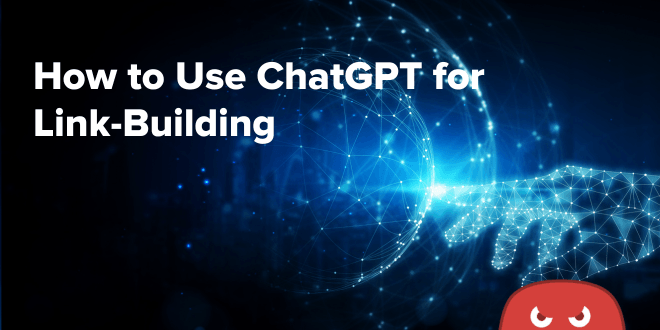


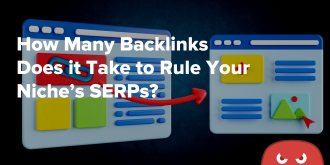
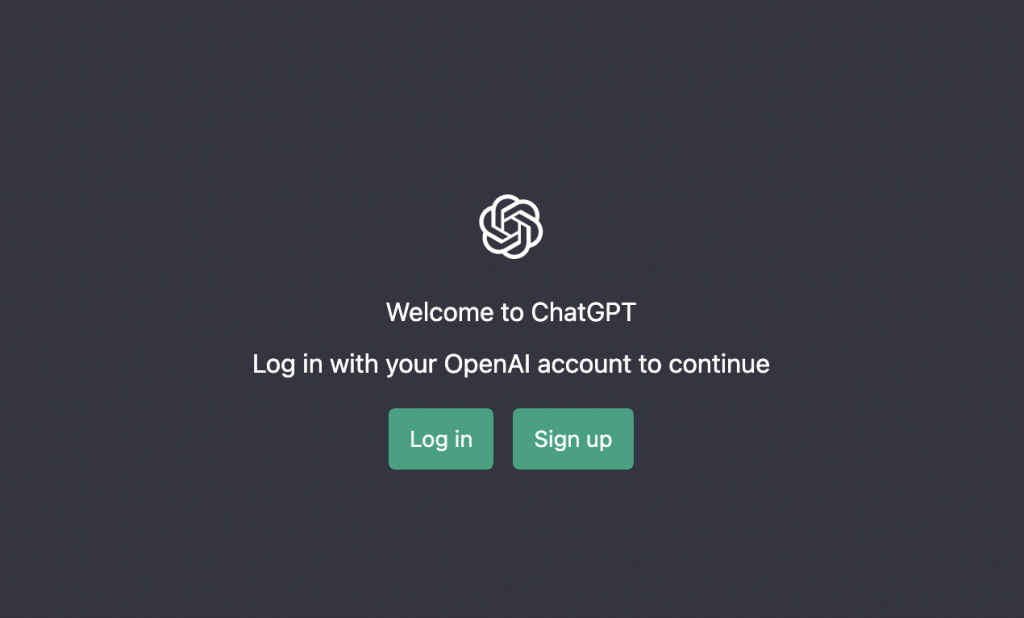
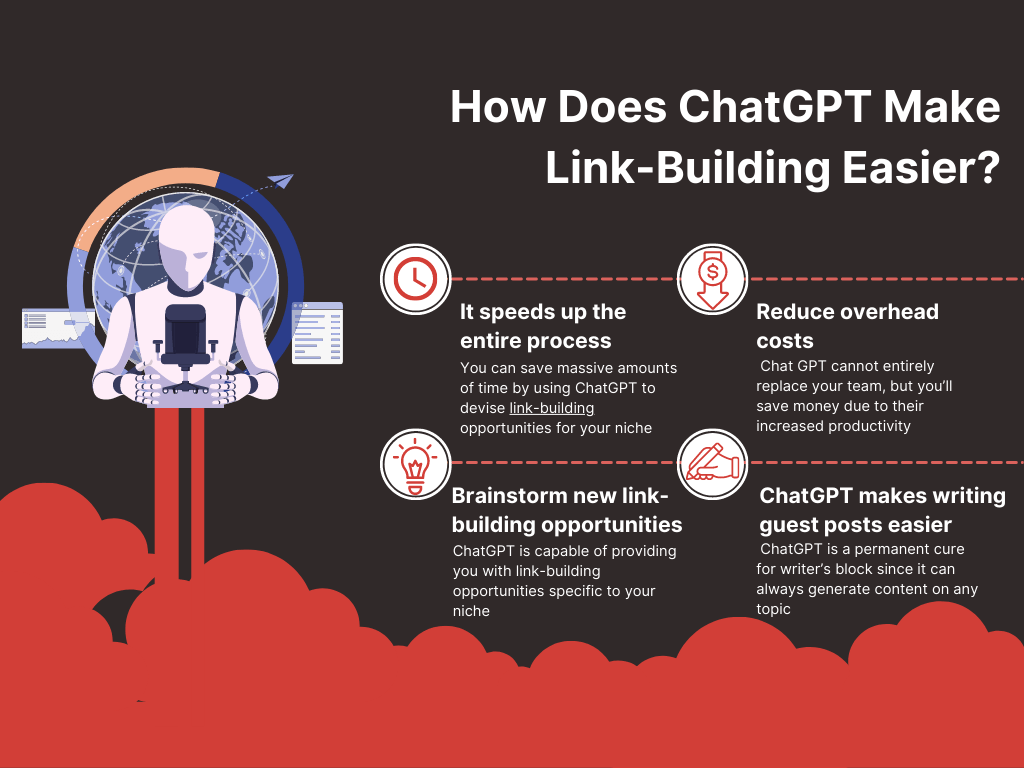
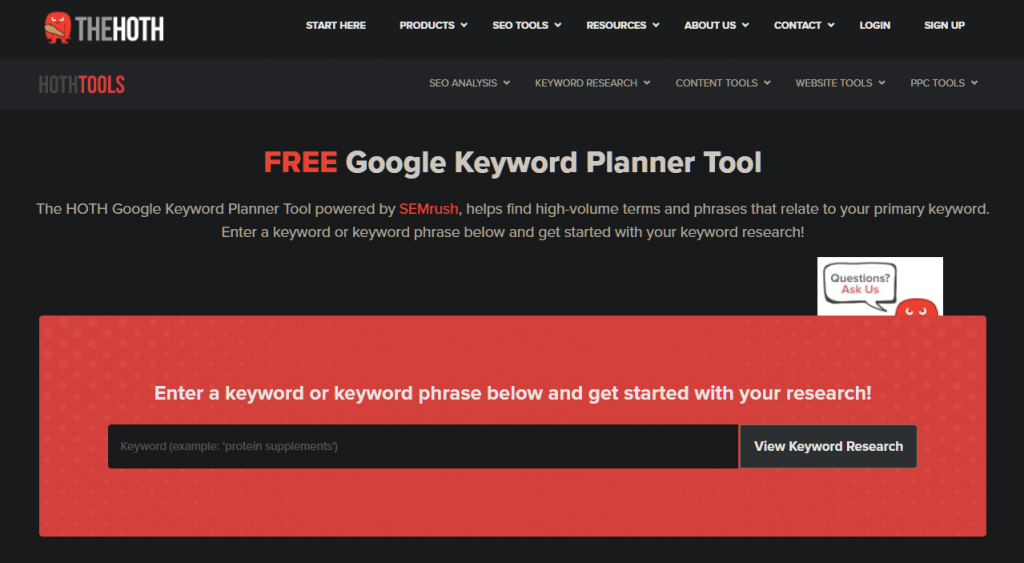
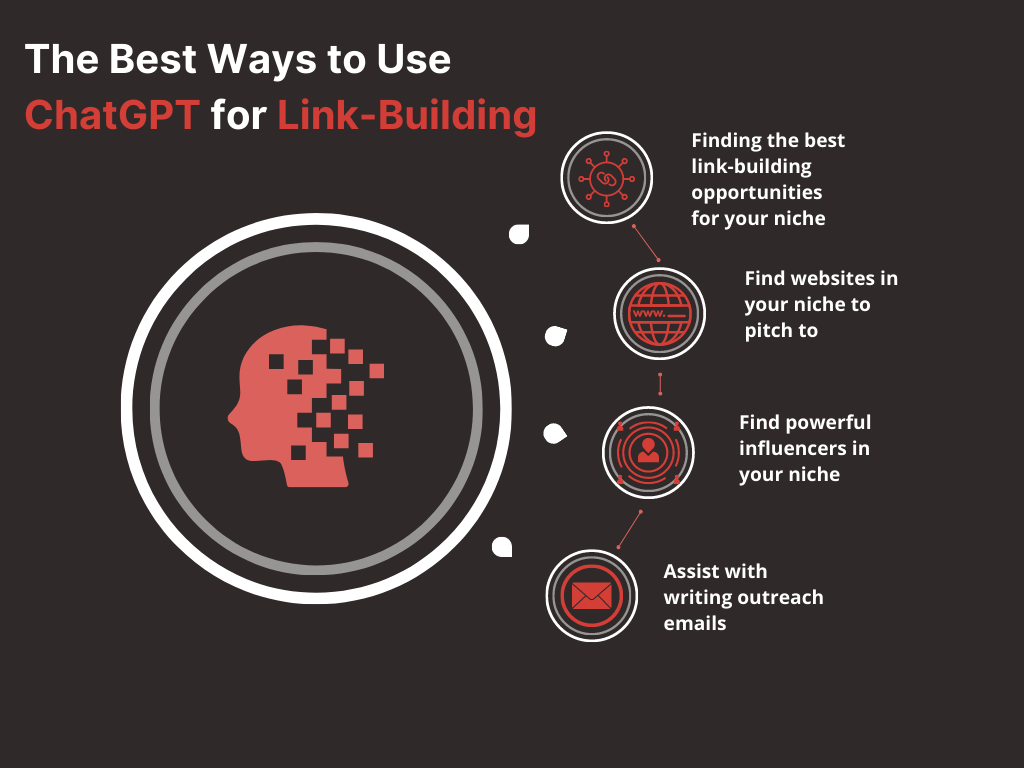


wow, this is amazing. Ive been using ChatGPT but just for contents and general inquiries. I definitely try this immediately. Thanks for sharing.
nice blog
Just read this piece on using ChatGPT for link-building, and it’s a game-changer! It’s amazing how AI can simplify SEO tasks that used to take ages. Kudos to The HOTH for breaking it down so well.
very informative article ,thank you